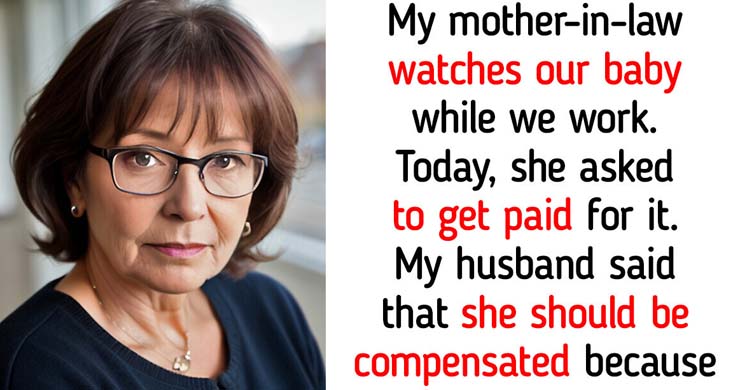Mother-In-Law Wants To Get Paid For Babysitting Grandchild

Becoming a parent for the first time is undoubtedly overwhelming, and juggling parenthood with careers can be a real challenge, especially when you’re in your twenties or thirties. Many young parents rely on the support of their parents, the new baby’s grandparents, for help during this demanding phase. This family was no exception until a dispute arose.
The couple had been married for a decade and had recently welcomed a beautiful baby into their lives. With both partners working full-time jobs and the husband working from home, they faced the daily struggle of balancing their careers with childcare. Fortunately, the husband’s mother, who had recently retired, generously offered to step in as the primary caregiver for their six-month-old infant while they worked. She not only cared for the baby but also contributed to the household by cooking, cleaning, and doing the dishes.
Everything seemed to be going smoothly until a conversation took an unexpected turn. The mother-in-law surprised her daughter-in-law by requesting compensation for her services as a caregiver for her grandchild. This request left the new parents in shock, as they couldn’t fathom valuing the grandmother’s time and love for her grandchild in monetary terms.
The daughter-in-law was torn by this request, feeling that her grandmother had provided free childcare for her and her sister when they were young, out of love. Similarly, she had babysat her siblings without expecting payment during her youth. She believed caring for family should be an act of love, not a financial transaction.
However, her husband had a different perspective. He argued that paying his mother was fair, considering that without her help, they would need to hire an unknown caregiver, which could be more expensive in the long run. This difference in opinion had led to friction in their marriage, leaving the daughter-in-law feeling frustrated and confused.
The situation had put this family at a crossroads. The mother-in-law’s request had created a dilemma, testing their values, family dynamics, and financial considerations. The daughter-in-law found herself torn between her belief in unpaid family care and the practicality of their situation. At the same time, her husband believed in compensating his mother for her crucial assistance. The family needed a resolution to preserve their relationships and ensure the best care for their beloved child.




